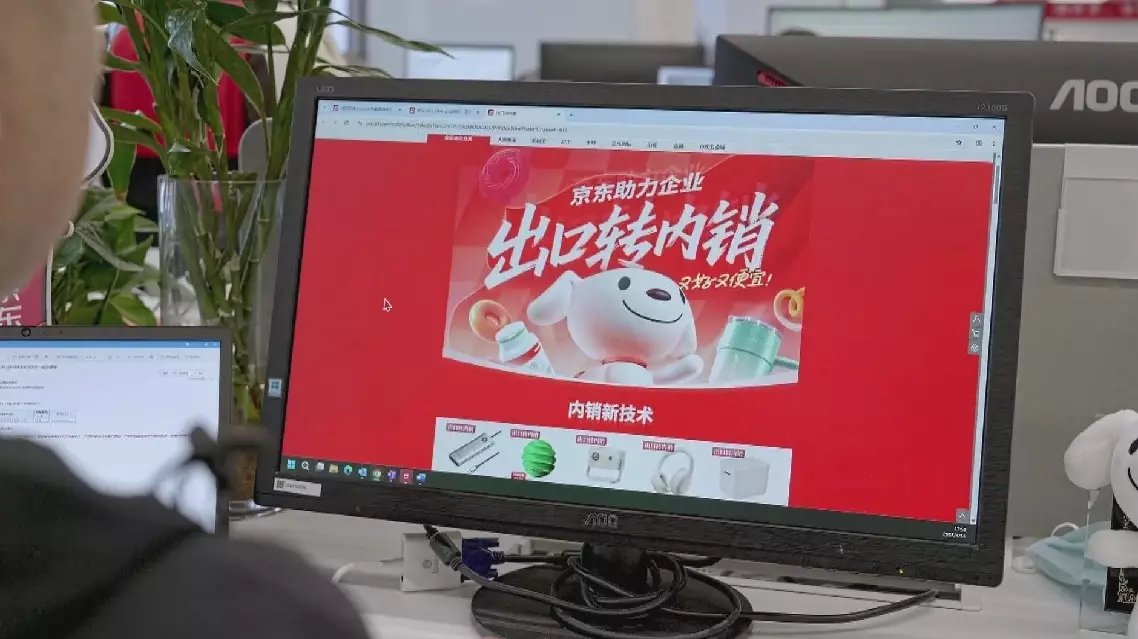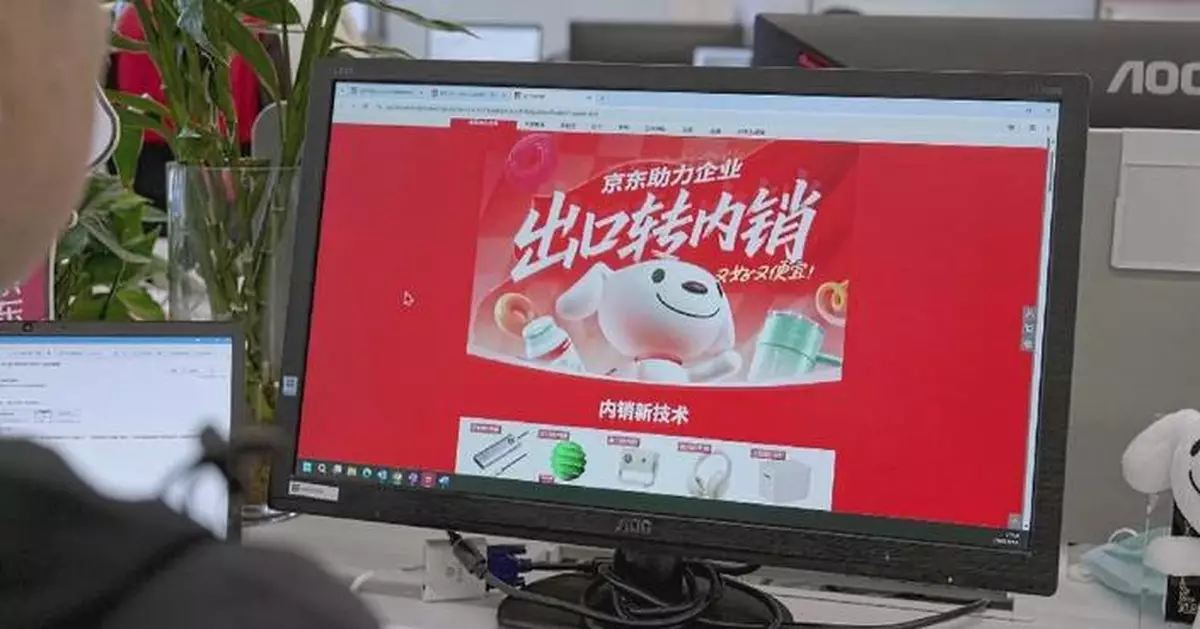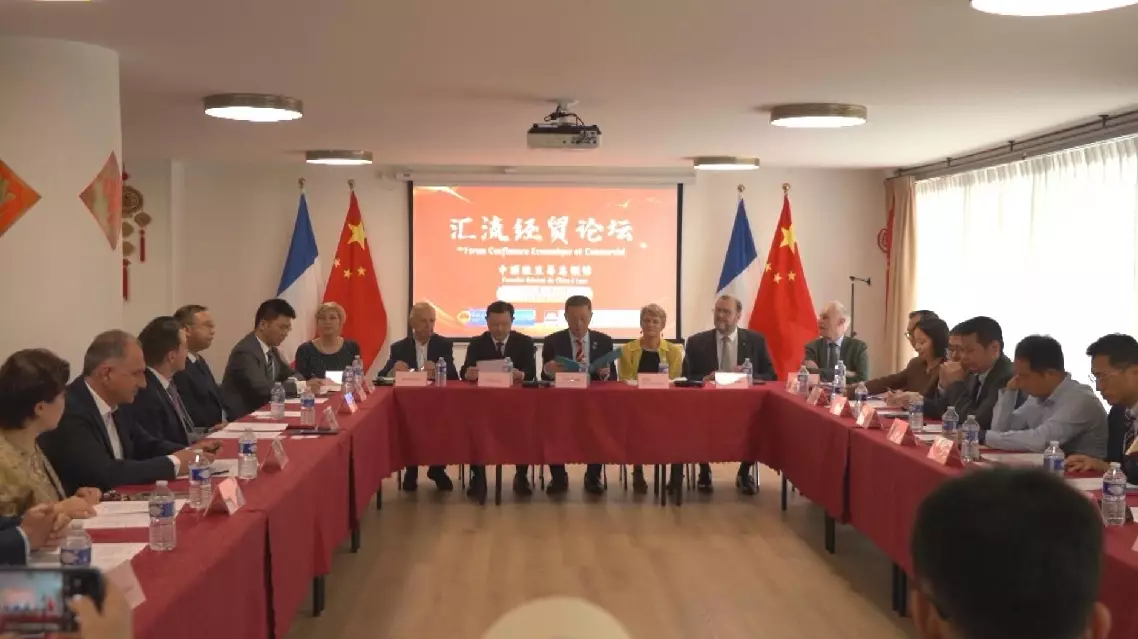Chinese e-commerce giants are ramping up efforts to assist exporters affected by US tariffs, guiding them toward the vast domestic market through digital platforms, product upgrades, and targeted promotional campaigns.
Luo Jia, head of the export-to-domestic sales project at JD.com, told China Media Group (CMG) reporter that many members of their marketing teams have recently visited industrial clusters where foreign trade enterprises are concentrated, in order to inspect and select products for domestic promotion.
One of her colleagues visited a company specializing in ceramic dinner plates, with over 80 percent of its business relying on exports. It is now urgently seeking to expand into the domestic market.
On the evening of April 12, the company launched its first product - a ceramic plate left in stock due to the U.S. tariff hike - on JD.com. Within 11 hours, sales exceeded 90,000 units, far surpassing expectations.
"We're currently facing inventory pressure with more than 10 million pieces in stock. Seeing tens of thousands of items sold in such a short time has greatly boosted our confidence in shifting foreign trade products to the domestic market. If we encounter similar backlogs in the future, we’ll remain confident, knowing that we have an alternative sales channel," said Su, an e-commerce manager at the ceramic company.
However, significant differences in marketing strategies, operational models, production standards, and distribution channels between foreign trade and the domestic market have posed challenges for many export-oriented enterprises. E-commerce platform staff members like Luo have stepped in to offer much-needed support.
"Take electric drive products, for example - many foreign countries require the CE mark, while China mandates the CCC certification. Additionally, the operating voltage and chargers used abroad are often incompatible with Chinese standards. We help them find solutions, such as bundling products with converters. For products with English packaging, we advise them to update their labels and ensure compliance with domestic certification requirements," Luo explained.
At present, more than a dozen e-commerce platforms have moved swiftly to promote high-quality export products in the domestic market.
"We actively encourage exporters to research and develop new, innovative, and high-quality products tailored for domestic consumers. This initiative helps foreign trade enterprises tap into China’s vast domestic market of 1.4 billion people, offering them broader development prospects," said Fu Longcheng, deputy head of the China General Chamber of Commerce.

Chinese e-commerce giants support exporters in shifting to domestic market






















































